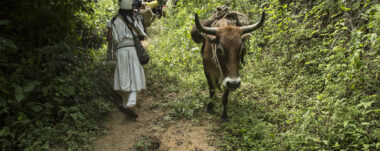Beekeeping: The World of the Bees
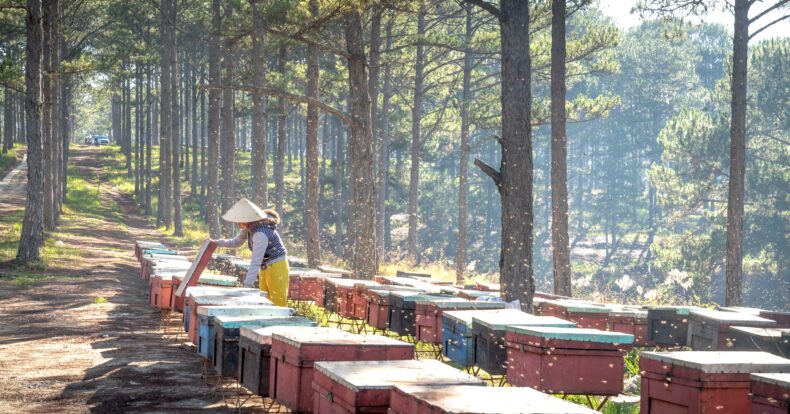
The defense of rural beekeeping against contamination by GMOs, agrochemicals and other problems caused by industrial agriculture has led several groups of honey producers to become political actors. In this way, they are essential to sustain the struggle for territory and the preservation of traditional practices.
Around the world, bees are crucial to agricultural ecosystems. They help pollinate crops, increasing the yield of crops and maintaining the natural balance of the ecosystem. However, due to intense tillage of the land in Costa Rica, the niches in which bees live have been reduced or even destroyed. As a result, this has led to a decline in bee populations and has had a negative impact on agricultural productivity. To ensure that bee populations remain healthy and productive, it is important to protect their habitats and create new niches for them to inhabit.
In this section, beekeeper María Elena Naranjo Prado, who has been breeding, managing and rescuing bees for more than 10 years, talks about the world of bees.
Bees and their ecosystem
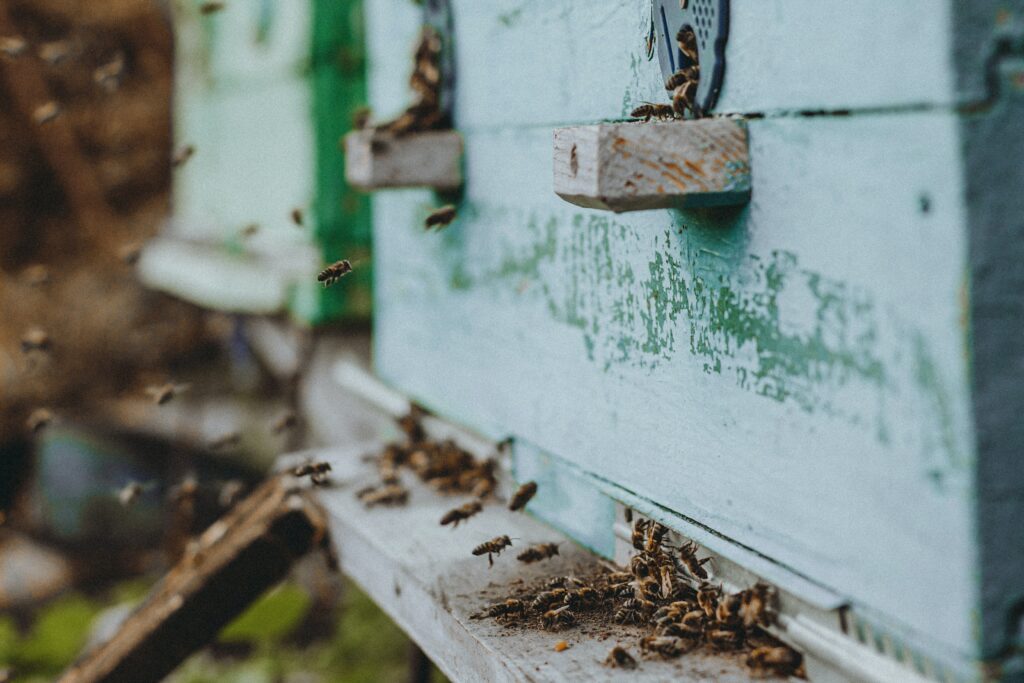
Beekeeping is regulated by the Ministry of Agriculture and Livestock (MAG). Beekeepers must comply with the rules and regulations established by the MAG through its SENASA office to ensure that bees are properly cared for. This includes the obtaining of official certificates for the keeping of bees, as well as compliance with specific bee care standards. The MAG has established standards for bee care, such as providing a safe environment, protecting their health and ensuring they have access to food sources. In fact, beekeepers must also comply with standards on the use of pesticides and other chemicals. These standards are designed to ensure that bees remain healthy and productive while protecting the environment.
The bees in a hive or apiary will forage over an average area of eight kilometers, which can include land cultivated by farmers or agricultural enterprises. Therefore, a beekeeper depends on what hundreds of different people have decided to do with their land. This interaction is very positive when neighbors grow plants that provide resources for bees, such as those that abound in the traditional milpa: beans, coffee, citrus or tomatoes. But it is disastrous when their practices include deforestation, monocultures or the use of insecticides, as the bees are left without resources and even poisoned.
In this way, intensive agriculture will evolve and develop according to models that are increasingly dependent on modern intensive beekeeping with native bees.
The impact of intensive agriculture on biodiversity, however, should not be underestimated, as the conservation of nutrients is low due to soil leaching and crop export. In other words, the effect of this type of agriculture on the nutrition and balance of bees in these agricultural ecosystems.
The country, on the other hand, has laws, decrees, rules and regulations of different social scope, which allow the harmonious coexistence of beekeeping in the various production scenarios. In this way, it maintains the activity, the integrity of colonies or ecosystems, and for the benefit of insect pollination activity for food production.
A more organic beekeeping
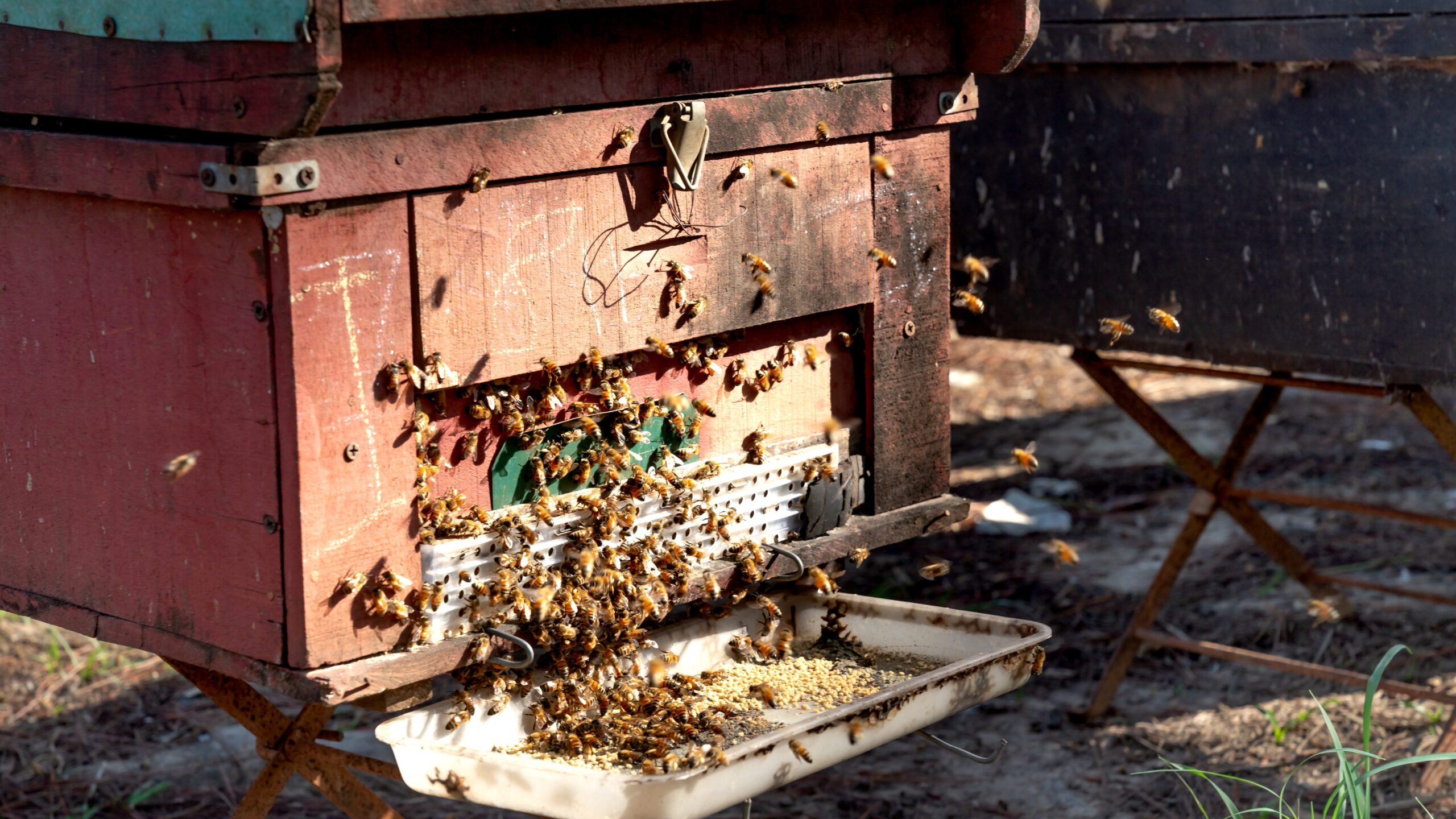
So far it is difficult to certify organic beekeeping in Costa Rica, because normally the beekeeper keeps his apiary close to his house or farm. This means that it would be impossible for bees NOT to cross territory where agrochemicals are used to grow crops on a small plot of land with a radius of less than 8 km. That is to say, the bee does not know which farm is organic and which is not, it only goes in search of the rich nectar of the flowers. What is guaranteed is that in Costa Rica, beekeepers use specific products approved by SENASA to combat any disease of the bee, including the use of medicinal plants such as oregano, rosemary, and lemon acid; she is also wise and in the forest finds their own remedies.
María Elena Naranjo Prado
Although, it also involves careful observation and management of the apiary to make it an ideal habitat for the bees to thrive. By following these steps, beekeepers can ensure that their hives remain healthy and productive while protecting the environment.
In other words, obtaining organic honey is an activity that requires special attention, a practice that is almost scarce in Costa Rica, as it is a complex task where beekeepers are dedicated to honey production for part of the year. This, as long as there is the nectar flow in the summer, during the flowering season. On the other hand, beekeeping provides income that does not require deforestation or destruction of natural resources. Understanding how changes in land cover and land use affect bees and beekeeping is of utmost importance for the development of the local economy and the conservation of biodiversity, in fact there is no agriculture without bees, just as there is no bees without forest, one is the flag of the other, there is reciprocity of subsistence.
So, can anyone be a beekeeper?
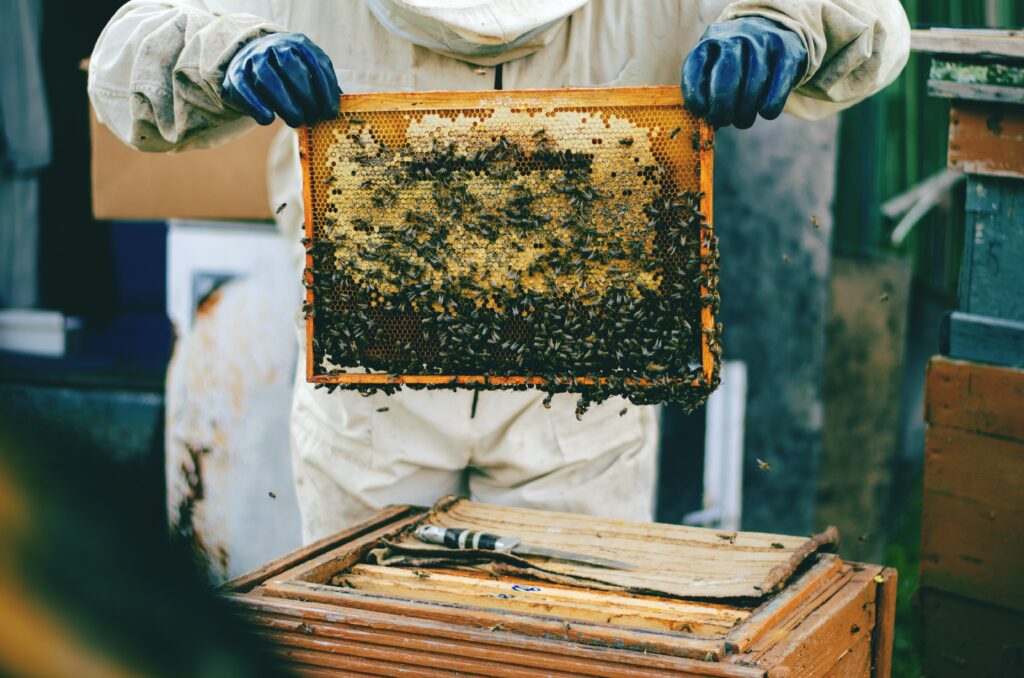
Beekeeping is a rewarding and satisfying experience that can bring you closer to nature. It requires an investment of time, money and resources, but it is well worth the effort. However, there are some rules and regulations that must be followed when it comes to beekeeping. It is important to understand the care that bees require before investing in this activity.
It is a fascinating activity that has been around for centuries. It is a great way to help the environment, as well as provide delicious honey and hive by-products for you and your family. But it is also important to remember that beekeeping must be done in a responsible and sustainable way, where there are some rules and regulations that must be followed at the country level under standards set by government institutions. In other words, it requires an investment of time, knowledge, money and resources, but it is worth the effort.
By choosing the right people to become beekeepers, we can ensure that they have sufficient knowledge and experience to manage bees properly. We need to make sure they understand the importance of protecting bees from diseases, parasites and other threats. In addition, we need to make sure they can identify which plants will provide the best nutrition for their hives, plant live fences and re-educate people with environmental awareness programs and teach children the importance of this insect.
The question then is: Do the bees choose the right people?
While there is no definitive answer here, it is believed that bees can sense whether someone is a good fit or not. Therefore, having an open mind when it comes to selecting potential beekeepers could be beneficial in ensuring successful hives in the future.
Sensorial Sunsets in collaboration with María Elena Naranjo Prado
Navigate articles





